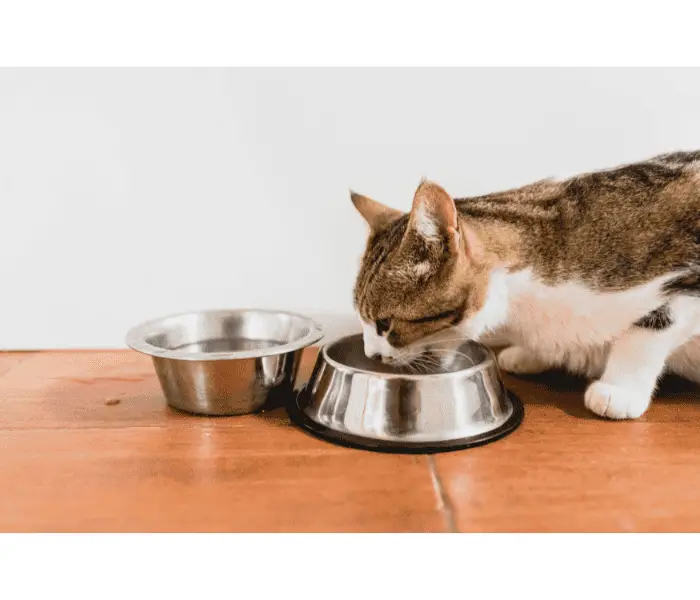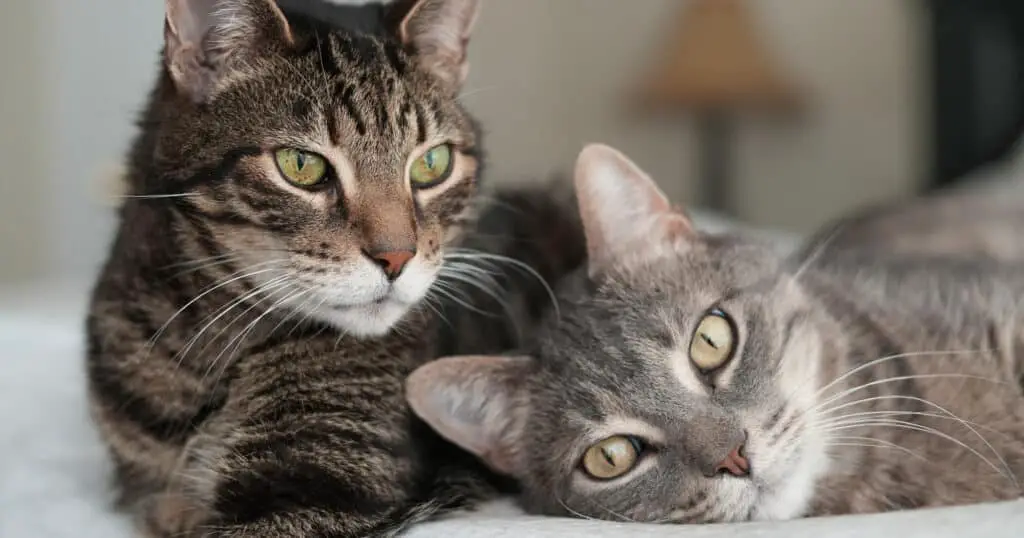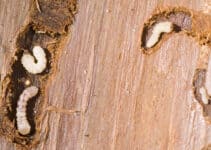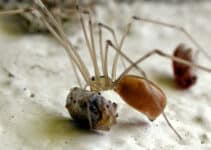We know woodworm can be a menace. If ignored woodworm can undermine household timber, eat our precious wooden antiques and ultimately hit us where it hurts – in the wallet. But are they harmful to more than our woodwork?
Can they woodworm really pose a threat to your cat? You’ll be reassured to find out the answer is, conditionally, no. Woodworm themselves are not harmful to humans or pets. However, there are a few caveats.
While woodworm themselves are not harmful to humans or pets, including cats, we do know that two parasites that feed on woodworm can also sting humans. These offending parasites are called Scleroderma domesticum (a type of cuckoo wasp) and Pyemotes ventricosus (European Straw Itch Mite).
Don’t panic, though. These parasites don’t pose a huge threat to humans unless the person stung is allergic to the venom.
And they only sting when humans come close to an infestation of their favourite food – woodworm. So we might suspect that if an unwitting cat strayed too close to a woodworm-infested area, it might be in for a sting too.

But common sense suggests that it’s unlikely that these parasites would even get close to stinging a cat. Why? Because moggies tend to have a protective layer of fur. If fact, most cats have three types of fur so they’re well armoured.
As the parasites mentioned are only looking for woodworm to feed on, it seems safe to assume they are going to be uninterested in burrowing through several layers of fur just to get a bite in. And even if they did, there is no firm evidence that suggests that a sting from either parasite is harmful to cats.
But, erring on the side of caution, we’d say that to avoid finding out the hard way, deal swiftly and completely with an infestation of woodworm.
Is Woodworm Treatment Harmful to Cats?
The second caveat as to whether woodworm harm cats rests in the ‘cure’. There are many ways to treat timber affected with woodworm and some of those ways are to use toxic chemicals. And toxic chemicals can be harmful to cats.

Of course, there are also less toxic treatments to get rid of woodworm and some entirely natural ones. So if you have a woodworm problem you’d like to treat but want to avoid using the harmful chemicals that could affect your cats, you can!
You can try kiln-heating smaller items of timber, using the freezing method, inert gas method, or liberally applying lavender essential oil onto the affected item.
However, if your woodworm infestation is more widespread this might not be practical. In this case, chemicals are sometimes the only answer.
But there are still some choices you can make to safeguard your cats during this process. Firstly, you could avoid woodworm treatments that contain Permethrin and Cypermethrin. These chemicals are particularly toxic to cats and fish.
So check your chosen treatment’s product details and avoid it if contains these ingredients. A boron-based woodworm treatment is a much better option for pet owners as it avoids both chemicals.
Fundamentally, though, if you give any woodworm treatment the chance to dry, it’s only going to pose a threat to your cat if they gnaw the treated wood. If for example you are treating a shed for woodworm, keep your cat inside until its fully dry.
And so if your cat is a chewer and you’ve used harmful chemicals, the only answer is to keep your cat away from the treated area.
We’d say it’s better to treat woodworm with a less toxic treatment if you have a contained outbreak of woodworm. But treat it you must. Because having a safe home is just as important to your cat as it is to you.



